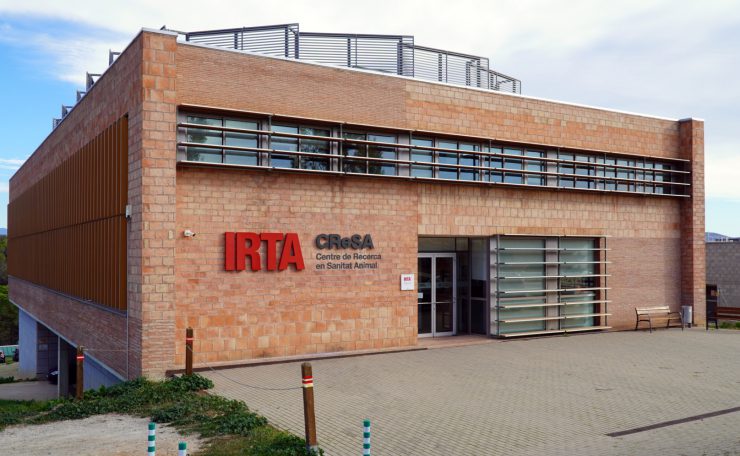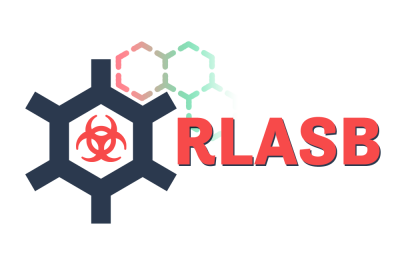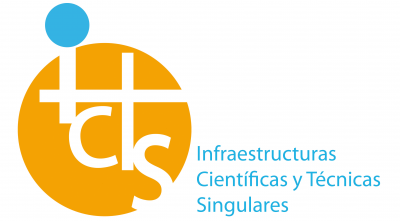Enter the word to search and press enter.

Building CReSA. Campus UAB.
08193 Bellaterra (Barcelona) Spain.
Maps: https://goo.gl/maps/LrWXhZfCswiGsqWC8
GD Coordinates:
Latitude: 41.50517706741173
Longitude: 2.0984047651290894
GMS Coordinates:
Latitude: 41º 30′ 18,637″
Longitude: 2º 5′ 54,257″
Contact:
Tel: (+34) 93 467 40 40 +Ext. 1708
Fax: 93 581 44 90
E-mail: cresa@irta.cat
Follow IRTA-CReSA on the social networks:


IRTA-CReSA houses a state of the art Bioimaging Platform situated in a high biocontainment enviroment (BSL3), ensuring the highest safety for high-risk pathogen research. This unique setting allows advanced infectious disease studies under strict safety protocols.
The Bioimaging Platform includes a high throughput live cell imaging system (IncuCyte SX5), as well as a combined confocal-lightsheet microscope for live-cell imaging (Leica Stellaris 8). Our team can offer you assistance with experimental design, data acquisition and analysis as well as comprehensive training and technical support to ensure optimal use of our bioimaging facilities.
On 26 May 2017, the General Assembly of the World Organization for Animal Health (OIE) designated the Animal Health Research Center (IRTA-CReSA) as the OIE Collaborating Center for “research and control of emerging swine diseases and re-emerging in Europe, ”with Dr. Joaquim Segalés as contact person, and OIE Reference Laboratory for Classical Swine Fever, with Dr. Llilianne Ganges as a designated expert. It was the first research center in Spain designated as a member of the OIE Center network.
The OIE is a global organization that defines Collaborating Centers as centers of expertise in a specific area of expertise related to general animal health issues. In the competition for emerging and re-emerging pig diseases, IRTA-CReSA can provide international advice following the mandate and internal regulations of the OIE Collaborating Centers.
The appointment was made possible by the Ministry of Agriculture and Fisheries, Food and Environment (Mapam), in charge of presenting the candidacy represented by Mr. Valentín Almansa (Director General of Health of Agricultural Production), Mrs. Beatriz Muñoz (Deputy Director General of Animal Health and Hygiene and Traceability) and Mr. Gregorio Torres (Delegate of the OIE Scientific and Technical Department, appointed by Mapam).


The Network of High-Security Biological Laboratories (RLASB) is one of the Singular Scientific and Technical Infrastructures (ICTS) of Spain, constituted by two nodes, IRTA-CReSA and CISA-INIA. It provides open access research facilities under BSL3 conditions. ICTS are large installations, resources, facilities and services, unique in its kind, that are dedicated to cutting edge and high quality research and technological development, as well as to promote exchange, transmission and preservation of knowledge, technology transfer and innovation.

TRANSVAC2 is designed to accelerate vaccine development by enhancing European vaccine research and training, and increase sustainability of EC vaccine projects by implementing a permanent research infrastructure for early vaccine development. It is a collaborative infrastructure project funded by the European Commission, initially under the 7th Framework Programme (FP7) and currently under Horizon 2020. The project is a joint effort of leading European groups working in the field of vaccine development and is coordinated by the European Vaccine Initiative (EVI).

Infravec2 is an international and interdisciplinary research infrastructure project funded by the European Commission Horizon 2020 Research Infrastructure Program (INFRAIA). Infravec2 provides NO COST access to products and services for research on insect vectors of human and animal disease, including mosquitoes, sandflies and other flies. Infravec2 is coordinated by the Institut Pasteur, Paris, France.

The principal aim of the VetBioNet infrastructure project is to establish and maintain a comprehensive network of pre-eminent high-containment (BSL3) research facilities, academic institutes, international organizations and industry partners that is dedicated to advance research on epizootic and zoonotic diseases and to promote technological developments.